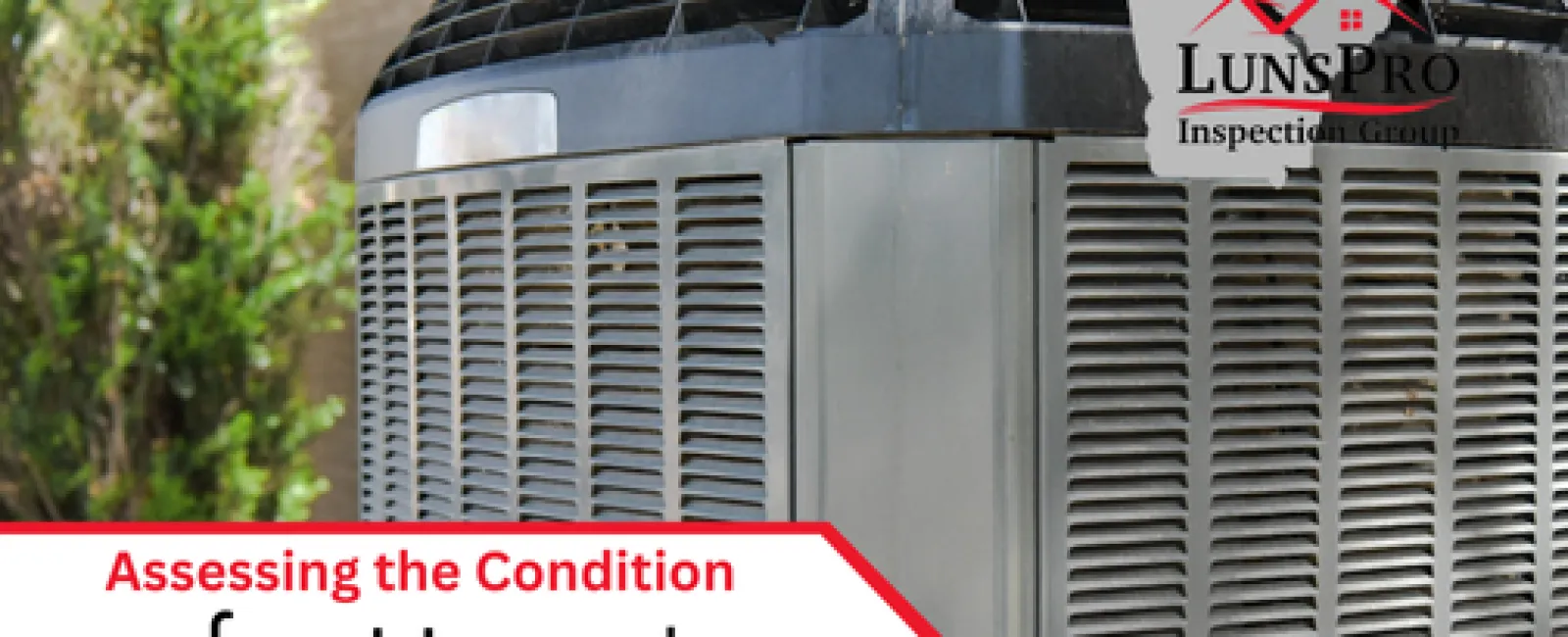The Heating, Ventilation, and Air Conditioning (HVAC) system is a crucial component of any home, significantly impacting comfort, air quality, and energy efficiency. Regular inspections of the HVAC system ensure it operates effectively and can help identify potential issues before they become costly repairs. This article will guide you through the process of assessing the condition of a home's HVAC system, highlighting common inspection findings and their implications. We will also discuss the services provided by LunsPro Home Inspections, which include residential and commercial inspections in Georgia.
Importance of HVAC System Inspections
Regular HVAC inspections are essential for several reasons:
- Comfort: Ensuring the system operates correctly helps maintain a comfortable indoor environment.
- Energy Efficiency: An efficient system reduces energy consumption and lowers utility bills.
- Air Quality: Proper ventilation and filtration improve indoor air quality, reducing allergens and pollutants.
- Longevity: Regular maintenance and early detection of issues extend the lifespan of the HVAC system.
Components of an HVAC System
A comprehensive HVAC system inspection covers several key components, including:
- Heating System: Comprising furnaces or heat pumps that provide warmth during colder months.
- Cooling System: Air conditioners or heat pumps that cool the home during warmer months.
- Ventilation System: Ensuring proper air circulation, removing stale air, and bringing in fresh air.
- Ductwork: Distributing heated or cooled air throughout the home.
- Thermostat: Controlling the HVAC system and allowing residents to set desired temperatures.
Key Areas of HVAC System Inspections
Professional inspectors, such as those from LunsPro Home Inspections, focus on several critical areas when assessing an HVAC system:
1. Heating System Inspection
- Furnace Condition: Inspectors check for signs of wear and tear, rust, and other damage. They also assess the age of the furnace, as older units are more prone to breakdowns.
- Burners and Heat Exchangers: These components are examined for cracks, corrosion, or other damage that could affect efficiency and safety.
- Pilot Light/Ignition System: Ensuring the pilot light or ignition system functions correctly is crucial for safe operation.
- Blower and Motors: Inspectors check the blower and motor for proper operation, lubrication, and any unusual noises.
2. Cooling System Inspection
- Air Conditioner Condition: The age, condition, and efficiency of the air conditioning unit are assessed. Inspectors check for refrigerant leaks, proper cooling, and overall functionality.
- Condenser and Evaporator Coils: These components are inspected for cleanliness and damage. Dirty or damaged coils can reduce efficiency and lead to higher energy bills.
- Refrigerant Levels: Proper refrigerant levels are crucial for efficient cooling. Inspectors check for leaks and ensure levels are within the manufacturer's specifications.
- Thermostat Functionality: The thermostat is tested to ensure it accurately controls the cooling system.
3. Ventilation System Inspection
- Ductwork Condition: Inspectors examine ductwork for leaks, damage, and proper insulation. Leaky ducts can lead to significant energy loss.
- Air Filters: Air filters are checked for cleanliness and proper installation. Dirty filters can reduce air quality and system efficiency.
- Ventilation Fans: Fans are inspected for proper operation and cleanliness, ensuring effective ventilation.
4. Overall System Performance
- Efficiency Testing: Inspectors measure the system's efficiency to determine if it operates within acceptable parameters.
- Noise Levels: Unusual noises can indicate underlying issues with the system. Inspectors listen for any abnormal sounds during operation.
- Airflow: Proper airflow is essential for efficient heating and cooling. Inspectors check for consistent airflow throughout the home.
Common HVAC System Inspection Findings
During an HVAC system inspection, several common issues may be identified:
1. Dirty or Clogged Filters
- Dirty filters can reduce system efficiency and air quality. Regular replacement is essential to maintain optimal performance.
2. Refrigerant Leaks
- Low refrigerant levels can lead to inadequate cooling and increased energy consumption. Leaks need to be identified and repaired promptly.
3. Thermostat Malfunctions
- A faulty thermostat can lead to inconsistent temperatures and system inefficiencies. Calibration or replacement may be necessary.
4. Ductwork Issues
- Leaky or poorly insulated ducts can cause significant energy loss. Inspectors may recommend sealing or insulating ducts to improve efficiency.
5. Aging Equipment
- Older HVAC units are more prone to breakdowns and may not operate as efficiently as newer models. Replacement may be recommended for units nearing the end of their lifespan.
6. Poor Maintenance
- Lack of regular maintenance can lead to various issues, including dirty components, worn-out parts, and reduced efficiency. Regular servicing is essential to keep the system in good working condition.
The Role of LunsPro Home Inspections
LunsPro Home Inspections offers comprehensive HVAC system inspections as part of our residential and commercial inspections in Georgia. Our team of experienced inspectors uses advanced tools and techniques to thoroughly assess the condition of HVAC systems, providing detailed reports and actionable recommendations.
Serving the broader Georgia region, LunsPro Home Inspections offers comprehensive inspection services, including HVAC system assessments. Whether you're in a residential or commercial property, our inspectors ensure that your HVAC system is in top condition.
Atlanta, GA Home Inspector Services
- For homeowners and buyers in Atlanta, GA, LunsPro Home Inspections provides specialized HVAC system inspections. Our Atlanta-based inspectors are familiar with the common HVAC issues in the area and can provide tailored advice and solutions.
Atlanta Home Inspections
- Serving the broader Georgia region, LunsPro Home Inspections offers comprehensive inspection services, including HVAC system assessments. Whether you're in a residential or commercial property, our inspectors ensure that your HVAC system is in top condition.
Drone Inspections
- LunsPro Home Inspections also offers drone inspections for hard-to-reach areas, providing a detailed view of the HVAC system's external components. This advanced technology ensures no aspect of the system is overlooked.
Same-Day Digital Home Inspection Report
- One of the standout features of LunsPro Home Inspections is our same-day digital home inspection report. After the inspection, clients receive a detailed digital report on the same day, allowing for prompt decision-making and action.
Repair Request Builder Tool
- LunsPro Home Inspections provides a repair request builder tool, making it easy for clients to create a list of necessary repairs based on the inspection report. This tool is particularly useful for homebuyers and real estate agents during negotiations.
Assessing the condition of a home's HVAC system is essential for maintaining comfort, energy efficiency, and indoor air quality. Regular inspections help identify potential issues early, ensuring the system operates efficiently and effectively. LunsPro Home Inspections offers comprehensive HVAC system inspections as part of our home inspection services in Atlanta, Georgia. With advanced tools, experienced inspectors, and prompt reporting, LunsPro ensures your HVAC system is in top condition, providing peace of mind for homeowners and buyers alike. Whether you're in Atlanta, or elsewhere in Georgia, trust LunsPro Home Inspections for all your HVAC inspection needs.

